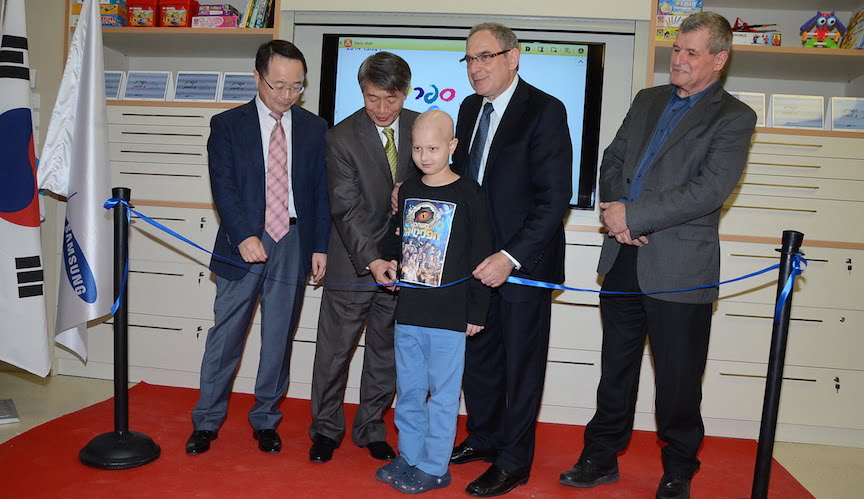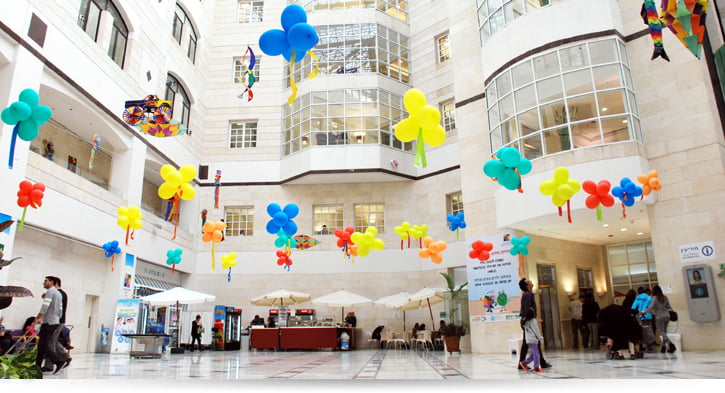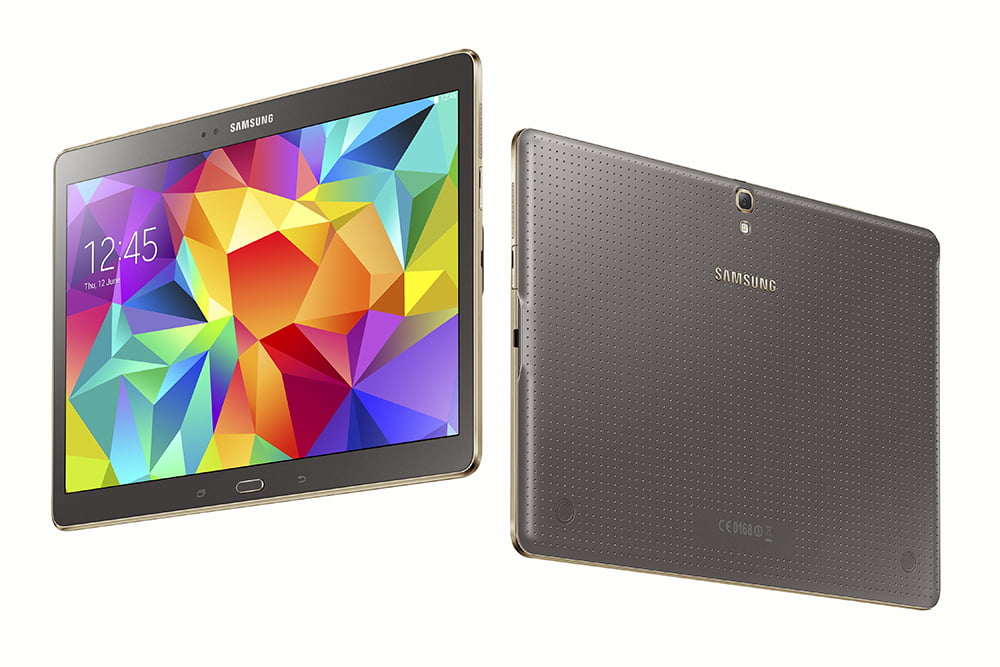This article was first published on The Times of Israel and was re-posted with permission.
Many kids complain about being stuck at school, but for some, like those laid up in the hospital for long periods, going to school is a privilege they can only wish for. To help kids who are long-term residents of Schneider Children’s Hospital in central Israel, electronics giant Samsung and Israeli e-book distributor E-vrit are teaming up to provide an educational experience that will allow them to keep up with their classmates.

(L to R) Samsung Israel CEO Karyen Kai; South Korean ambassador to Israel Lee Gun-Tae; Or Wilhelm, a nine year old oncology patient at Schneider Children’s Hospital; Professor Yosef Peres of Schneider Children’s Hospital; and MK Miki Rosenthal (Photo credit: Aviv Hofi)
Children in cancer wards and other long-term care facilities at hospitals in Israel are provided with a range of services to afford them as “normal” a growing-up experience as possible. At holiday time, the hospital and service organizations hold parties, kids get presents on their birthdays, there are plays, game activities, and other events on a regular basis, and so on. And hospitals host schooling programs in ward learning centers, enabling kids to keep up their studies so they don’t fall too far behind their classmates and can easily reintegrate into school life when they leave the hospital.
SEE ALSO: Spider-Man Window Cleaners Surprise Children’s Hospital On Purim
Unfortunately, many of the kids in hospital are unable to attend these organized classes because they are bedridden or not strong enough to get to the learning center.
So last week Samsung brought its Hope Library to Schneider. Under the Hope Library program, started in 2012, libraries and smart classrooms – learning centers equipped with computers, advanced audiovisual equipment, etc. – have been set up in places like Iraq, rural India, Vietnam, Uzbekistan, and other developing areas. In Israel, company officials took a different tack when applying the program locally – helping out kids in Schneider Hospital’s hematology and oncology units, where many are bedridden for months at a time.

Schneider Center for Children Medicine
Children laid up in hospital beds will receive a Samsung tablet, which will be connected over a local network to the hospital’s learning center where teachers conduct classes for kids who are able to attend. The tablets will work in sync with the learning center’s smart whiteboard, with text, graphics and apps loaded or written on the board automatically showing up on the tablet. A video stream of the class and an audio connection will let kids see and hear everything that is going on, and enable them to speak out and participate in classes.
To continue reading this article on the TOI site, click here.
Photo: Courtesy
Related posts

Israeli Medical Technologies That Could Change The World

Harnessing Our Own Bodies For Side Effect-Free Weight Loss

Missing Protein Could Unlock Treatment For Aggressive Lung Cancer




Facebook comments